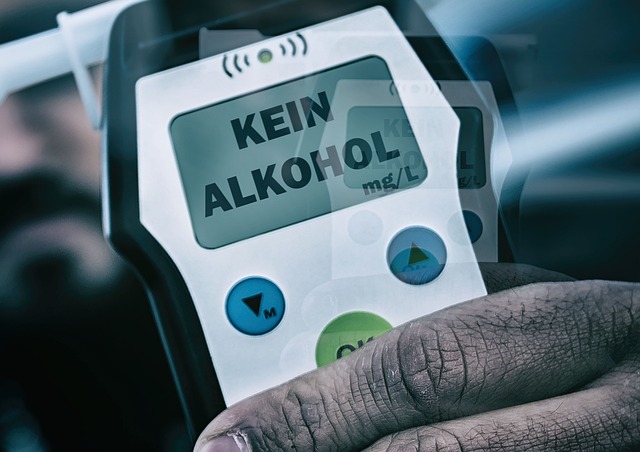Community service initiatives focusing on public education about the intersection of mental health and impaired driving can significantly reduce related social issues. Through workshops, peer support groups, and awareness campaigns, these programs break down stigma, promote responsible driving, and foster a culture of accountability. Such efforts offer individuals a path to redemption by atoning for past mistakes, encouraging personal growth, resilience, and positive change. Effective programs collaborate with local authorities and healthcare providers, directly engaging at-risk populations and achieving tangible outcomes. By addressing these critical issues, community service becomes a powerful tool for individual transformation and inspiring safe driving behaviors.
Community service as a path to redemption is explored in this article, focusing on its power to make amends for impaired driving while addressing mental health issues. We delve into the profound impact these programs can have on individuals and communities, highlighting successful initiatives that transform lives.
From understanding the connection between mental health and impaired driving to implementing effective strategies and overcoming challenges, this guide offers valuable insights into harnessing community service as a force for positive change.
- Understanding the Impact: Mental Health and Impaired Driving
- The Role of Community Service in Redemption
- Strategies for Effective Community Service Programs
- Success Stories: Transforming Lives Through Service
- Overcoming Challenges: Best Practices for Implementation
Understanding the Impact: Mental Health and Impaired Driving

Community service, with a focus on public education and awareness, can play a pivotal role in addressing pressing social issues such as impaired driving and its profound impact on mental health. Many individuals struggle with mental health challenges that may contribute to risky behaviors, including getting behind the wheel while under the influence of alcohol or drugs. By participating in community service projects centered around this topic, volunteers can help reduce stigma associated with seeking mental health support and encourage open conversations about responsible driving.
Through interactive workshops, peer support groups, and public outreach campaigns, these initiatives raise awareness about the connection between mental well-being and safe driving practices. Understanding the complex interplay between mental health issues and impaired driving behavior is crucial in preventing accidents and saving lives. Community service efforts that focus on education and empathy can foster a culture of accountability and responsible decision-making, ultimately making amends for the devastating consequences of this public safety concern.
The Role of Community Service in Redemption

Community service plays a pivotal role in the process of redemption, offering individuals a chance to give back and make amends for their actions. For those who have faced challenges with mental health or impaired driving, it can be a powerful tool for personal growth and societal contribution. By engaging in community service, individuals can take responsibility for their past mistakes and demonstrate a commitment to change. This act of service allows them to connect with the very communities they may have affected negatively, fostering a sense of accountability and empathy.
Through volunteering, individuals can support causes related to mental health awareness, driving safety, or social welfare programs. These experiences help in building resilience and offer a new perspective on life. It provides an opportunity to learn from past mistakes, gain self-worth through positive contributions, and potentially inspire others to make different choices. Community service becomes a transformative journey where redemption is not just about avoiding punishment but becoming a productive member of society while positively impacting the lives of others.
Strategies for Effective Community Service Programs

Effective community service programs focus on tangible outcomes and lasting impact. One key strategy is to address pressing local issues, such as Mental Health and Impaired Driving, by designing initiatives that directly engage at-risk populations. For instance, hosting awareness campaigns and workshops can educate individuals on the consequences of impaired driving and provide resources for managing mental health challenges. These programs should be interactive, using storytelling, group discussions, and peer support to foster a sense of community and shared responsibility.
Additionally, successful community service initiatives prioritize collaboration with local authorities, non-profit organizations, and healthcare providers. This multi-stakeholder approach ensures that services are comprehensive and tailored to the unique needs of the target community. By leveraging existing resources and expertise, these partnerships can expand program reach, enhance sustainability, and create a supportive network that extends beyond the initial service delivery.
Success Stories: Transforming Lives Through Service

Community service initiatives have often been a powerful tool for redemption and personal growth, especially in cases where individuals seek to make amends for their actions. One such area where this is evident is through programs that address mental health issues alongside impaired driving. Success stories abound of individuals who, through community service, have not only bettered their own lives but also contributed significantly to the well-being of their communities.
For instance, many people who have struggled with substance abuse or mental health challenges and found themselves behind the wheel under the influence have turned to community service as a way to give back and atone for their past actions. They volunteer at rehabilitation centers, support groups, or educational programs aimed at raising awareness about impaired driving and its devastating consequences. These experiences not only help them stay focused on their own recovery but also empower them to inspire change in others, fostering a cycle of positive impact that extends far beyond the initial act of service.
Overcoming Challenges: Best Practices for Implementation

Implementing community service as a form of making amends requires careful consideration, especially when addressing sensitive issues like impaired driving and its impact on mental health. Overcoming challenges in this process involves several best practices. Firstly, ensure that the program offers support tailored to individuals’ unique needs; one-size-fits-all approaches may not address the complex nature of these cases. This could include access to counseling services for mental health management and education programs focused on responsible drinking or substance use awareness.
Community service should foster a safe and non-judgmental environment, encouraging open dialogue. Training facilitators or volunteers to handle such sensitive topics with empathy is crucial. Additionally, integrating peer support systems can be game-changer; individuals who have successfully navigated similar challenges can offer invaluable guidance and motivation, fostering a sense of community and shared purpose.
Community service offers a powerful pathway to redemption and positive change, especially for individuals who have been affected by impaired driving. By engaging in meaningful service projects, those who have caused harm can make amends, improve mental health outcomes, and contribute to the well-being of their communities. Effective programs focus on personal growth, accountability, and support networks, ultimately transforming lives and breaking cycles of poor decision-making. In addressing mental health challenges associated with impaired driving, community service becomes a transformative force, fostering resilience and hope for a brighter future.






